Find Help
More Items From Ergsy search
-
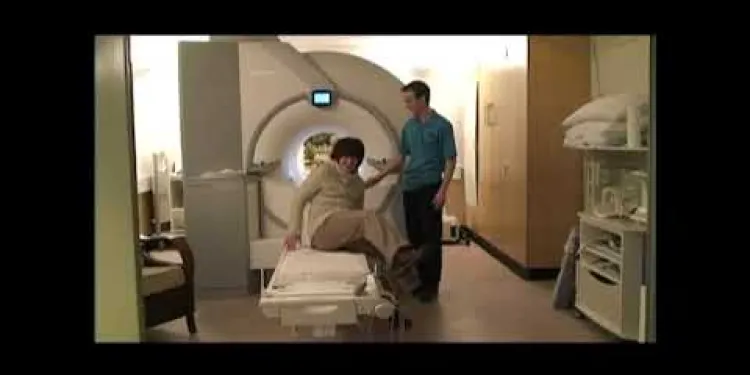
Going for an MRI Scan
Relevance: 100%
-

I'm having an MRI scan
Relevance: 100%
-

How Does an MRI Scan Work?
Relevance: 91%
-

MRI Scanner walkthrough - what to expect at your appointment
Relevance: 65%
-
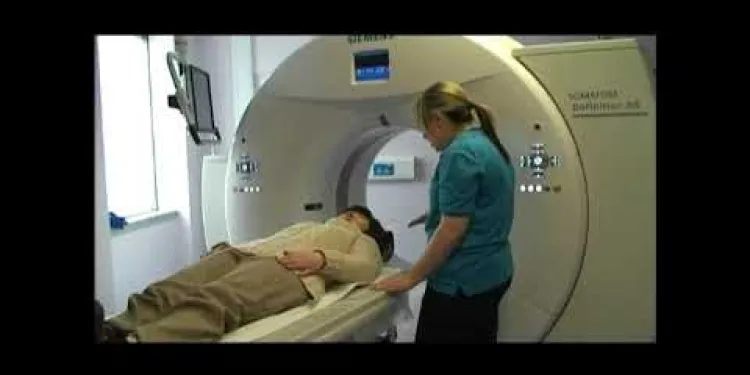
Going For a CT Scan
Relevance: 47%
-

What is the purpose of a bone scan in prostate cancer treatment?
Relevance: 47%
-

So, you're having a CT scan...
Relevance: 45%
-

Having a CT Scan in Tayside
Relevance: 45%
-

Are AI body scans reliable?
Relevance: 45%
-
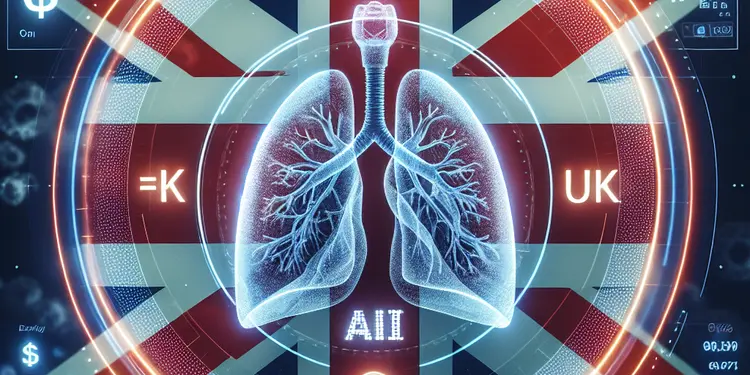
How do AI algorithms detect lung cancer in scans?
Relevance: 44%
-
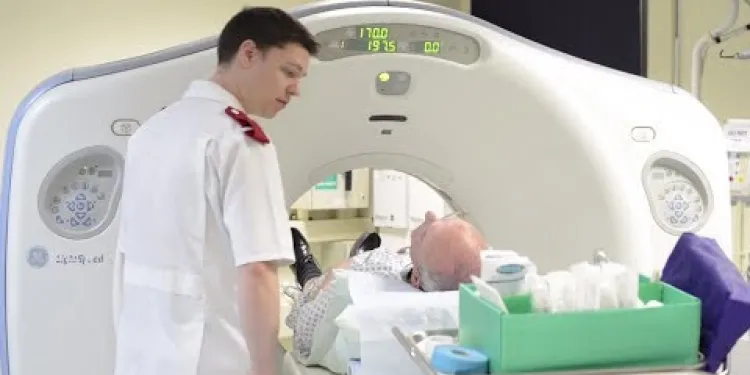
Having a CT scan in Hospital - What's it like having a CT scan at Bedford Hospital?
Relevance: 44%
-

What to expect of a DXA Scan
Relevance: 43%
-

What to expect of a DXA Scan
Relevance: 43%
-
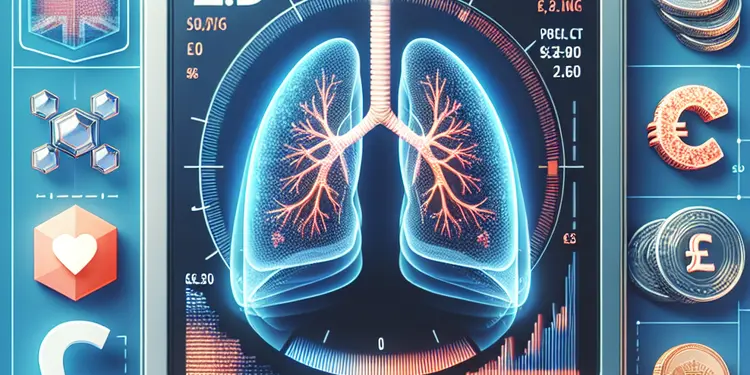
What is a low-dose CT scan for lung cancer?
Relevance: 41%
-

The FDG PET Scan: What to expect
Relevance: 41%
-
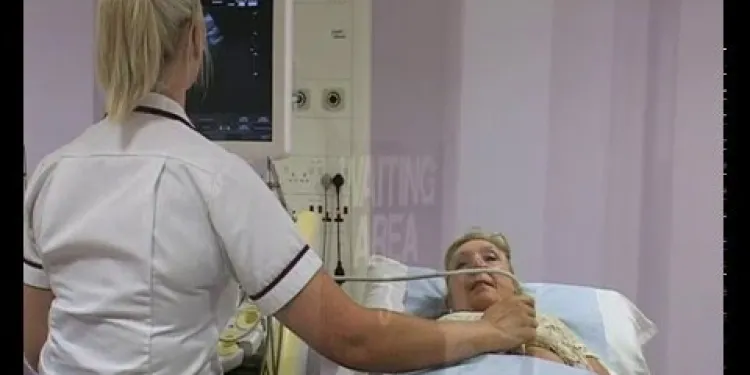
Having an Ultrasound scan at Manchester Royal Infirmary
Relevance: 39%
-

Your PET/CT scan at University College Hospital
Relevance: 39%
-

Patient video: What to expect when having a bone scan
Relevance: 37%
-
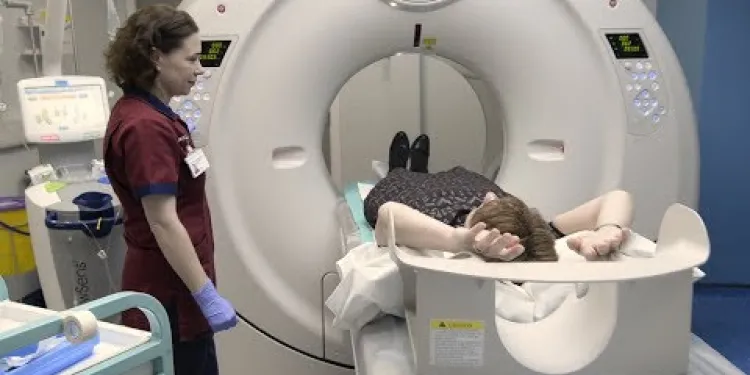
Having a CT Scan at Stoke Mandeville Hospital - Buckinghamshire Healthcare NHS Trust
Relevance: 36%
-

Prostate cancer diagnosis and tests
Relevance: 31%
-

What medical tests are used to diagnose whiplash?
Relevance: 29%
-

Which types of imaging data are analyzed by AI for lung cancer detection?
Relevance: 26%
-

How is motor neurone disease diagnosed?
Relevance: 26%
-
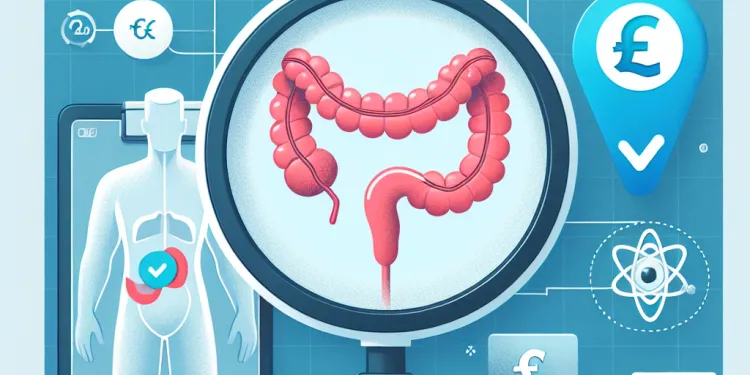
How is appendicitis diagnosed?
Relevance: 26%
-
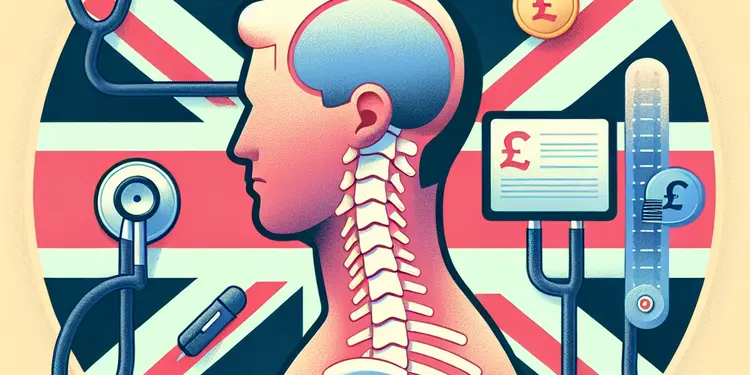
How is whiplash diagnosed?
Relevance: 23%
-

How is testicular cancer diagnosed?
Relevance: 20%
-
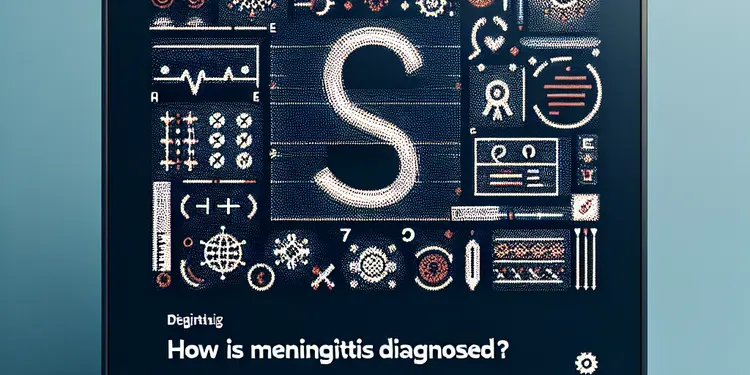
How is meningitis diagnosed?
Relevance: 20%
-

How is thrombosis diagnosed?
Relevance: 18%
-

Can testicular cancer spread to other parts of the body?
Relevance: 17%
-

How is Crohn's disease diagnosed?
Relevance: 17%
-

How is heart failure diagnosed?
Relevance: 17%
-

Emma's story: My brain tumour story
Relevance: 17%
-

How is dementia diagnosed?
Relevance: 17%
-

How is Alzheimer's disease diagnosed?
Relevance: 17%
-
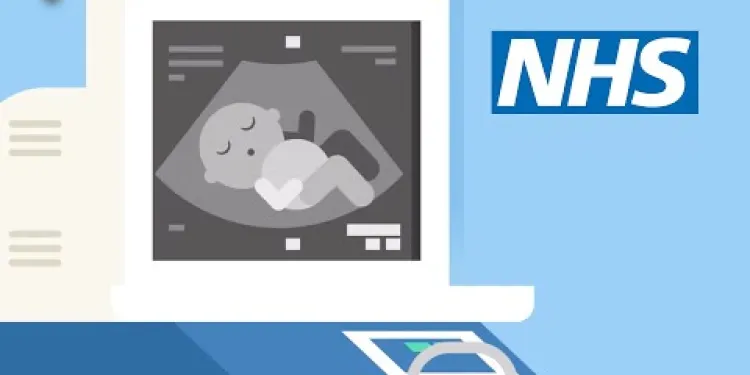
Screening tests for you and your baby | NHS
Relevance: 16%
-
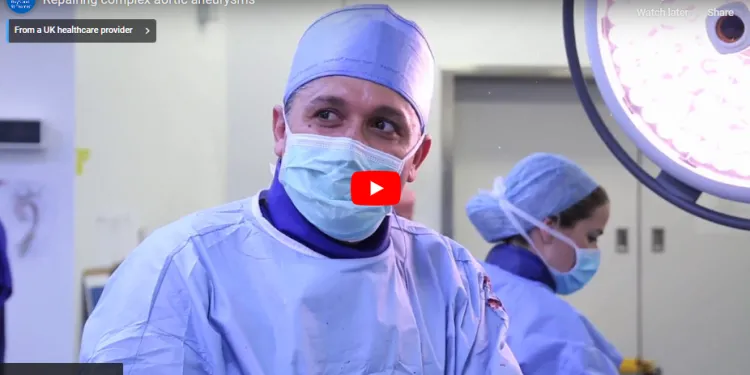
Repairing complex aortic aneurysm
Relevance: 16%
-

Can prostate cancer recur after treatment?
Relevance: 16%
-

Can AI help in monitoring lung cancer progression?
Relevance: 16%
-

Vulval Cancer
Relevance: 16%
-

Will the test affect my menstrual cycle?
Relevance: 16%
I'm Having an MRI Scan
What is an MRI Scan?
Magnetic Resonance Imaging (MRI) is a medical imaging technique used to create detailed images of the organs and tissues within the body. It employs a powerful magnetic field, radio waves, and a computer to produce these images. Unlike X-rays, MRI scans do not use ionizing radiation, making them a safer option for many diagnostic purposes.Why Do I Need an MRI Scan?
MRI scans are widely used to diagnose a range of conditions. They are particularly good for imaging soft tissues, making them invaluable for diagnosing brain and spinal cord abnormalities, joint issues, heart problems, and tumors. Your healthcare provider will recommend an MRI scan if they believe it will help better understand your condition or monitor treatment progress.Preparing for Your MRI Scan
Special preparation is usually minimal. However, you may be asked to fast for a few hours if a contrast dye will be used. It's essential to inform your healthcare provider of any metal implants, pacemakers, or medical devices, as the magnetic field used in MRI can interfere with them. Wear comfortable clothing and remove all metallic objects such as jewelry and hairpins before the scan.What to Expect During the Procedure
You will lie down on a table that slides into the MRI machine, which looks like a large tube. The procedure is painless but can be noisy due to the operations of the machine. You will be provided with earplugs or headphones to help diminish the noise. The radiographer will communicate with you through an intercom and may give you instructions to hold your breath at specific times. The scan can last from 15 minutes to over an hour, depending on the area being examined.After the MRI Scan
Usually, there are no side effects, and you can resume your normal activities immediately. If a contrast dye has been used, you might be advised to drink plenty of fluids to help flush it out of your system. The images from your scan will be reviewed by a radiologist, and the results will be sent to your referring doctor, who will discuss them with you.Conclusion
MRI scans are a crucial diagnostic tool that provides highly detailed images that can greatly assist in medical diagnoses and treatment plans. While the process is straightforward, ensuring you are well-prepared can help make your experience smoother. Always follow your healthcare provider’s instructions and don't hesitate to ask questions if you have any concerns regarding the procedure.I'm Having an MRI Scan
What is an MRI Scan?
An MRI scan is a special test that helps doctors see inside your body. It makes pictures of your organs and tissues. It uses a big magnet, radio waves, and a computer to make these pictures. Unlike X-rays, MRI scans do not use harmful radiation, so they are safer.Why Do I Need an MRI Scan?
Doctors use MRI scans to find out what's wrong inside your body. They are really good for looking at soft parts of your body, like your brain, spine, and heart. If your doctor thinks an MRI scan will help understand your health problem or see how treatment is going, they may ask you to have one.Preparing for Your MRI Scan
Usually, there isn't much you need to do to get ready. Sometimes, if they use a special dye during the scan, you might not eat for a few hours. Tell your doctor if you have metal in your body, like implants or pacemakers, as these can affect the scan. Wear comfy clothes and take off jewelry and hairpins before the scan.What to Expect During the Procedure
You will lie on a table that slides into a big machine shaped like a tube. The scan doesn't hurt, but it can be noisy. You will get earplugs or headphones to help with the noise. The person doing the scan will talk to you through a speaker and might ask you to hold your breath sometimes. The scan can take 15 minutes to over an hour, depending on what they need to look at.After the MRI Scan
You usually won't feel anything bad after the scan and can go back to your normal activities. If they used a dye, you might need to drink a lot of water to help clear it from your body. A doctor who looks at the pictures will send the results to your doctor, and they will talk to you about what the scan found.Conclusion
MRI scans help doctors make very clear pictures that can help with diagnosing and treating your health problems. The scan process is simple, and being prepared can make it easier. Always listen to your doctor's instructions and ask questions if you are unsure about anything.Frequently Asked Questions
What is an MRI scan?
An MRI scan (Magnetic Resonance Imaging) is a medical imaging technique used to produce detailed images of the internal structures of the body using strong magnetic fields and radio waves.
How do I prepare for an MRI scan?
Preparation for an MRI scan typically involves removing any metal objects and informing the radiographer if you have any metal implants. You may be asked to change into a hospital gown.
Can I eat or drink before an MRI scan?
In most cases, you can eat and drink normally before an MRI scan. However, if you are having a scan of your abdomen or pelvis, you may be advised to avoid eating or drinking for a few hours beforehand.
Will I feel any pain during the MRI scan?
No, an MRI scan is a painless procedure. However, some people may find it uncomfortable to remain still for a long time or to be in the confined space of the MRI machine.
How long does an MRI scan take?
The duration of an MRI scan can vary depending on the area of the body being scanned, but most scans take between 20 to 60 minutes.
Can I have an MRI scan if I am pregnant?
MRI scans are generally considered safe during pregnancy, but it is important to inform your doctor and the radiographer if you are pregnant or think you might be.
What should I wear for an MRI scan?
Wear loose, comfortable clothing without any metal fastenings. You may be given a hospital gown to wear during the scan.
Can people with claustrophobia have an MRI scan?
Yes, people with claustrophobia can have an MRI scan. Inform the radiographer ahead of time so they can provide support, and in some cases, a sedative may be offered.
What if I have metal implants or devices in my body?
Inform the radiographer if you have any metal implants or devices, such as pacemakers or joint replacements. Some metal objects can interfere with the MRI scan.
Will I need a contrast agent for my MRI scan?
Some MRI scans require a contrast agent to improve the clarity of the images. If needed, it will be injected into a vein, and you will be informed beforehand.
Are there any risks associated with MRI scans?
MRI scans are considered very safe as they do not use ionising radiation. However, there may be some risks associated with the use of contrast agents or if you have certain metal implants.
Can I listen to music during my MRI scan?
Many MRI facilities offer headphones or earplugs with music to help you relax during the scan. You can ask about this option when scheduling your scan.
How will I receive my MRI scan results?
The results of your MRI scan will typically be reviewed by a radiologist, and a report will be sent to your referring doctor, who will discuss the findings with you.
Can I bring a friend or family member with me to the MRI scan?
You can bring a friend or family member to the appointment, but they may not be allowed in the scanning room during the procedure. They can wait in a designated waiting area.
What happens if I move during the MRI scan?
It is important to remain as still as possible during the MRI scan to ensure clear images. If you move, the images may be blurred, and the scan may need to be repeated.
What is an MRI scan?
An MRI scan is a big camera that takes pictures inside your body. It helps doctors see your bones and organs. This can help them understand what's wrong.
Tools or tips to help:
- Ask a grown-up to explain the pictures.
- You can listen to music while in the MRI machine.
- Ask the doctor to show you the machine before the scan.
An MRI scan is a special picture of the inside of your body. It uses big magnets and radio waves to help doctors see what is going on inside you.
Getting Ready for an MRI Scan
An MRI scan is a big camera that takes pictures inside your body. Here is how you can get ready for it:
- Talk to the doctor: Tell them if you are scared or if you have anything in your body that is metal. Metal things can be earrings, braces, or a pacemaker.
- Dress carefully: Wear clothes without metal, like zippers or buttons. You might be asked to wear a hospital gown.
- Eat and drink: Your doctor will tell you if you can eat or drink before the scan.
It is okay to ask questions if you do not understand something. You can also bring a friend or family member to help you feel better.
Before you have an MRI scan, take off any metal things you are wearing like jewelry or glasses. Tell the person doing the scan if you have any metal inside your body. You might need to put on a hospital gown.
If you're worried, try taking deep breaths to stay calm. Bringing music to listen to during the scan might help you relax. You can also ask a friend or family member to come with you for support.
Can I eat or drink before an MRI scan?
Before an MRI scan, you might need to follow some rules about eating and drinking. Here are some tips to help you understand:
- Ask your doctor or nurse if you can eat or drink before the scan. Sometimes, you can eat and drink as normal.
- For some MRI scans, you may need to stop eating or drinking a few hours before.
- If you are not sure, call the hospital to ask. They will tell you what to do.
To help remember, you can:
- Write down the rules your doctor gives you.
- Set a reminder on your phone about when to stop eating or drinking.
Most of the time, you can eat and drink like normal before an MRI scan. But if the scan is for your belly or hips, you might need to stop eating or drinking a few hours before the test.
Will the MRI scan hurt?
An MRI scan does not hurt. You won't feel any pain.
But some people may not like staying still for a long time. It might also feel a bit cramped inside the MRI machine.
If you find it hard, you can try listening to music or thinking of nice things. These can help you relax.
How long does an MRI scan take?
An MRI scan takes about 15 to 90 minutes. This can be as short as a cartoon or as long as a movie.
Here are some tips to help:
- Bring headphones to listen to music. It can help you relax.
- Ask if a friend or parent can come with you.
- If you are scared, tell the doctor. They can explain everything to you.
An MRI scan looks inside your body. How long it takes depends on which part of the body is being checked. It usually takes 20 to 60 minutes.
Can I get an MRI scan if I am pregnant?
If you are going to have a baby, you might wonder if an MRI scan is safe. An MRI is a special picture of the inside of your body. It helps doctors see if everything is okay.
Talk to your doctor if you need an MRI and are having a baby. The doctor will tell you what is safe for you and your baby.
You can ask someone to go with you if you feel worried or have any questions. This can help you feel better and give you support.
MRI scans are usually safe for people who are pregnant. But, it is important to tell your doctor and the person doing the scan if you are pregnant or think you might be.
If you find reading hard, some tools can help you. You can try audiobooks or text-to-speech apps. These can read the words out loud for you. Pictures and videos can also help you understand better. Don't hesitate to ask someone you trust for help.
What clothes should I wear for an MRI scan?
Wear comfy clothes without metal. Metal can mess up the scan. This means no zippers, buttons, or jewelry.
You might need to wear a hospital gown. Ask the nurse or doctor beforehand.
You can ask someone to help you pick clothes, like a friend or family member. Using pictures can also help you know what to wear.
Wear clothes that are loose and comfy. Don’t wear clothes with metal buttons or zippers. You might need to wear a hospital gown for the scan.
Can people who are afraid of small spaces have an MRI scan?
Some people feel scared in small spaces. This is called claustrophobia.
An MRI scan is a test where you lie down in a tube to see inside your body.
If you are afraid of small spaces, tell your doctor or nurse.
Here are some things that can help:
- Bring a friend or family member for support.
- Listen to music during the scan.
- Close your eyes and imagine a nice place.
- The doctor might give you medicine to make you feel calm.
Yes, people who are scared of small spaces can still have an MRI scan. Tell the person doing the scan before starting. They can help you feel better. Sometimes, they might give you medicine to help you relax.
What if I have metal in my body?
Do you have metal things in your body, like an implant or a medical device? It is important to tell your doctor or nurse before any health checkups or treatments.
You can ask a family member or friend to go with you. You can also use a paper or digital tool to write down questions you want to ask.
Speaking with your doctor makes sure you are safe and get the best care.
Tell the X-ray doctor if you have any metal inside your body. This could be things like pacemakers or new knees or hips. Metal can sometimes mess up the MRI pictures.
Do I need a special dye for my MRI scan?
Sometimes, doctors use a special dye to help see inside the body. This dye is safe and helps the MRI show clear pictures. Not everyone needs the dye. Your doctor will tell you if you need it.
If you have questions, ask your doctor. They can explain everything to you. You can also bring someone to help you understand.
Sometimes, MRI scans need a special dye to make the pictures clearer. If you need this, a doctor will put it into your vein with a needle. They will tell you before they do this.
Is getting an MRI scan safe?
MRI scans are very safe because they do not use harmful rays. But there can be risks if you use special dye or have metal in your body.
Can I listen to music during my MRI scan?
Yes, you can listen to music during your MRI scan.
MRI scans can be noisy. Listening to music can help you feel calm.
Ask the doctor or nurse if they can play your favorite music.
You can also use special headphones to listen to music.
Talk to the staff if you have any questions or need help.
Lots of places where you get an MRI have headphones or earplugs. You can listen to music while they take pictures. This can help you feel calm. When you book your MRI, you can ask about listening to music.
How will I get my MRI scan results?
You go to the doctor after your MRI scan. The doctor will tell you what they see in the pictures. They might talk to you in person, over the phone, or send a letter.
If you don't understand, ask the doctor to explain more clearly. It's okay to ask questions.
You can also bring a friend or family member to help you remember what the doctor says.
If you need help reading the results, you can use tools like a reading app that reads text out loud. These apps can help you understand the words.
A doctor called a radiologist will look at your MRI scan pictures. They will write a report and send it to your doctor. Your doctor will then talk to you about what the pictures show.
Can I take someone with me to the MRI scan?
Yes, you can bring a friend or family member with you. They can wait with you before the scan, but they might have to wait outside the room during the scan. It's a good idea to ask the hospital staff for their rules.
If you feel nervous, tell the staff. They can help you feel better.
You can bring someone with you, like a friend or family member, to your appointment. But they might not be able to go into the scanning room with you. They can wait in the special waiting area outside.
What if I move during the MRI scan?
Try to stay still during the MRI scan. If you move, the pictures might be blurry. This can make it hard for the doctor to see what's wrong.
To help you stay still, you can:
- Close your eyes and relax.
- Think of a happy place or listen to music if allowed.
- Ask for a soft pillow to keep your head or body comfortable.
If you have any worries, talk to the doctor or nurse. They are there to help you feel safe.
Stay still during the MRI scan. This will help make clear pictures. If you move, the pictures may be blurry, and you might have to do the scan again.
Useful Links
This website offers general information and is not a substitute for professional advice.
Always seek guidance from qualified professionals.
If you have any medical concerns or need urgent help, contact a healthcare professional or emergency services immediately.
Some of this content was generated with AI assistance. We’ve done our best to keep it accurate, helpful, and human-friendly.
- Ergsy carfully checks the information in the videos we provide here.
- Videos shown by Youtube after a video has completed, have NOT been reviewed by ERGSY.
- To view, click the arrow in centre of video.
- Most of the videos you find here will have subtitles and/or closed captions available.
- You may need to turn these on, and choose your preferred language.
- Go to the video you'd like to watch.
- If closed captions (CC) are available, settings will be visible on the bottom right of the video player.
- To turn on Captions, click settings .
- To turn off Captions, click settings again.
More Items From Ergsy search
-

Going for an MRI Scan
Relevance: 100%
-

I'm having an MRI scan
Relevance: 100%
-

How Does an MRI Scan Work?
Relevance: 91%
-

MRI Scanner walkthrough - what to expect at your appointment
Relevance: 65%
-

Going For a CT Scan
Relevance: 47%
-

What is the purpose of a bone scan in prostate cancer treatment?
Relevance: 47%
-

So, you're having a CT scan...
Relevance: 45%
-

Having a CT Scan in Tayside
Relevance: 45%
-

Are AI body scans reliable?
Relevance: 45%
-

How do AI algorithms detect lung cancer in scans?
Relevance: 44%
-

Having a CT scan in Hospital - What's it like having a CT scan at Bedford Hospital?
Relevance: 44%
-

What to expect of a DXA Scan
Relevance: 43%
-

What to expect of a DXA Scan
Relevance: 43%
-

What is a low-dose CT scan for lung cancer?
Relevance: 41%
-

The FDG PET Scan: What to expect
Relevance: 41%
-

Having an Ultrasound scan at Manchester Royal Infirmary
Relevance: 39%
-

Your PET/CT scan at University College Hospital
Relevance: 39%
-

Patient video: What to expect when having a bone scan
Relevance: 37%
-

Having a CT Scan at Stoke Mandeville Hospital - Buckinghamshire Healthcare NHS Trust
Relevance: 36%
-

Prostate cancer diagnosis and tests
Relevance: 31%
-

What medical tests are used to diagnose whiplash?
Relevance: 29%
-

Which types of imaging data are analyzed by AI for lung cancer detection?
Relevance: 26%
-

How is motor neurone disease diagnosed?
Relevance: 26%
-

How is appendicitis diagnosed?
Relevance: 26%
-

How is whiplash diagnosed?
Relevance: 23%
-

How is testicular cancer diagnosed?
Relevance: 20%
-

How is meningitis diagnosed?
Relevance: 20%
-

How is thrombosis diagnosed?
Relevance: 18%
-

Can testicular cancer spread to other parts of the body?
Relevance: 17%
-

How is Crohn's disease diagnosed?
Relevance: 17%
-

How is heart failure diagnosed?
Relevance: 17%
-

Emma's story: My brain tumour story
Relevance: 17%
-

How is dementia diagnosed?
Relevance: 17%
-

How is Alzheimer's disease diagnosed?
Relevance: 17%
-

Screening tests for you and your baby | NHS
Relevance: 16%
-

Repairing complex aortic aneurysm
Relevance: 16%
-

Can prostate cancer recur after treatment?
Relevance: 16%
-

Can AI help in monitoring lung cancer progression?
Relevance: 16%
-

Vulval Cancer
Relevance: 16%
-

Will the test affect my menstrual cycle?
Relevance: 16%


